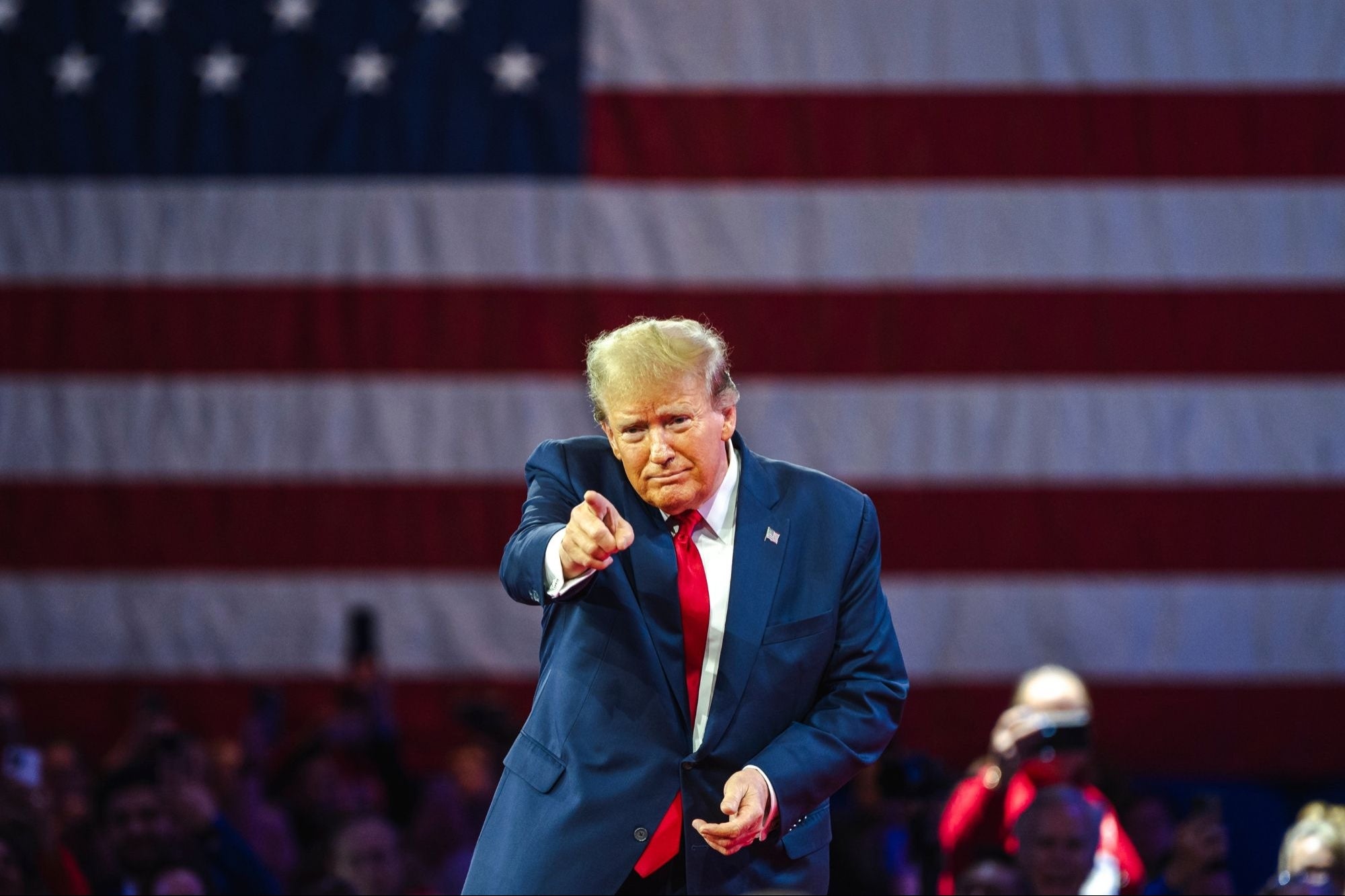Make AI Great Again? Trump's Controversial Vision to Lead the Global Tech Race Framed as a bid to win the global AI race and counter China, Trump's plan pushes deregulation, ideological purging, and infrastructure investment—but experts warn of the risks ahead.
By Mina Vucic Edited by BIZ Experiences UK
Opinions expressed by BIZ Experiences contributors are their own.
You're reading BIZ Experiences United Kingdom, an international franchise of BIZ Experiences Media.

In a sweeping move that signals the United States' ambitions to dominate the global artificial intelligence race, President Donald Trump has unveiled a bold—and controversial—AI roadmap aimed at fueling innovation, eliminating "ideological bias," and stripping away federal oversight he deems restrictive.
The newly released AI Action Plan, a 28-page document outlining more than 90 policy directives, is being positioned as a turning point for the future of AI in the U.S.—and a call to arms for both Silicon Valley and Washington's regulatory machinery.
"We believe we're in an AI race, and we want the United States to win that race," said Trump's crypto and tech advisor David Sacks, echoing what has become a central theme of the second Trump administration: AI supremacy as both economic strategy and national security imperative.
The Trump administration's plan calls for building out American data center infrastructure, boosting AI exports, and encouraging public and private sector adoption of machine learning technologies. But it goes further—mandating a full-scale review of federal policies that may hinder AI development, and explicitly calling for the removal of what the administration terms "woke" or "ideologically biased" AI systems.
"American development of AI systems must be free from ideological bias or engineered social agendas," the White House declared, in language that critics see as a thinly veiled rebuke of tech sector ethics guidelines introduced under Biden.
Three executive orders tied to the plan are expected to be signed this week: one promoting international export of U.S.-developed AI tech; one targeting ideological content in AI systems; and one aimed at removing barriers to deployment inside government agencies.
Trump's administration argues that with the right policy tools—and minimal red tape—the United States can secure its place as the global AI leader.
Between Innovation and Ideology
While business leaders may welcome efforts to accelerate AI deployment and infrastructure, critics argue the roadmap prioritizes corporate dominance over public good.
"The White House AI Action Plan was written by and for tech billionaires," said Sarah Myers West, co-executive director of the AI Now Institute. "It does little to address the real risks of AI, from surveillance to systemic discrimination."
Others see the plan as a direct rollback of Biden-era safeguards. Just two years ago, President Biden signed a historic executive order calling for robust safety standards and responsible AI use in government—an order that Trump rescinded within days of returning to office.
"This is a play for speed, not safety," said Jim Secreto, a former Biden administration official. "Promoting aggressive AI exports without reasonable controls strengthens China's hand and undermines trust in American technology."
Ironically, just weeks before unveiling the plan, the Trump administration reversed a ban on Nvidia's high-end AI chip exports to China, a move many observers saw as a concession to business interests.
What It Means for BIZ Experiencess and Investors
For BIZ Experiencess, especially in AI, fintech, cloud infrastructure, and data analytics, the roadmap signals open season. Reduced regulation, government adoption, and export promotion could lead to major windfalls for early-stage and growth companies alike.
"This could unlock billions in public sector contracts and private sector partnerships," said a venture capital partner in San Francisco. "It's a gold rush for AI startups—if you're on the right side of the political narrative."
Still, the deregulatory nature of the plan raises complex questions about ethical boundaries and long-term sustainability. Startups building responsible AI platforms—or working on inclusion, bias mitigation, or human oversight—may find themselves navigating uncertain terrain in a climate that favors speed over scrutiny.
And for multinational companies, the promise of export liberalization may come with diplomatic strings attached, especially as tensions with China and the EU continue to mount over tech sovereignty and cross-border data governance.
The Bigger Picture
The Trump administration is not alone in recognizing AI as a cornerstone of global power, but its approach stands in sharp contrast to the more cautious, regulation-forward models emerging in Europe and Asia.
What emerges from this moment may define how innovation is scaled—and who controls it—in the decade ahead.
For BIZ Experiencess, the question is no longer just how to build the next AI breakthrough, but under what rules, in whose interest, and at what cost.













